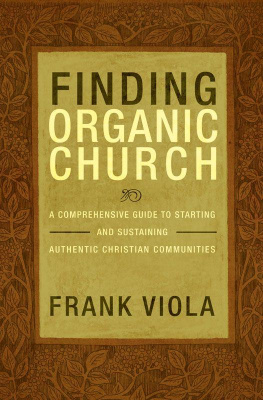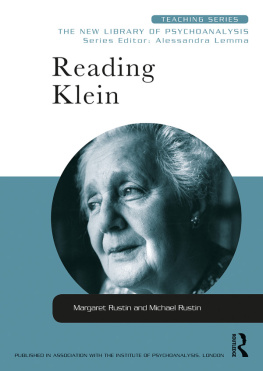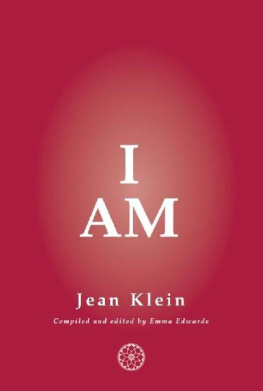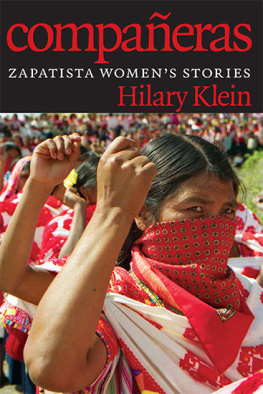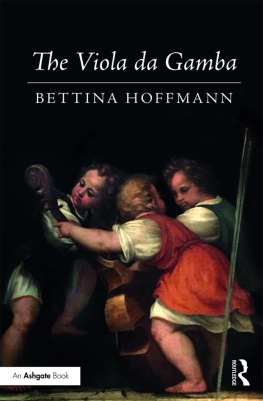The International Library of Sociology
WOMENS TWO ROLES
The International Library of Sociology
THE SOCIOLOGY OF GENDER AND THE FAMILY
In 15 Volumes
| I | Adopted Children | McWhinnie |
| II | Britains Married Women Workers | Klein |
| III | Families and their Relatives | Firth et al |
| IV | The Family and Democratic Society | Folsom |
| V | The Family and Social Change | Rosser et al |
| VI | The Family Herds | Gulliver |
| VII | Family Socialization and Interaction Process | Parsons et al |
| VIII | Foster Care | George |
| IX | From Generation to Generation | Eisenstadt |
| X | The Golden Wing | Yueh-Hwa |
| XI | In Place of Parents | Trasler |
| XII | In Retirement | Bracey |
| XIII | Middle Class Families | Bell |
| XIV | Nation and Family | Myrdal |
| XV | Womens Two Roles | Myrdal et al |
WOMENS TWO ROLES
Home and Work
by
ALVA MYRDAL
and VIOLA KLEIN
First published in 1956 by
Routledge
Reprinted in 1998, 2000, 2001 by
Routledge
2 Park Square, Milton Park, Abingdon, Oxfordshire OX14 4RN
711 Third Avenue, New York, NY 10017
Routledge is an imprint of the Taylor & Francis Group
First issued in paperback 2011
1956 Alva Myrdal and Viola Klein
All rights reserved. No part of this book may be reprinted or reproduced or utilized in any form or by any electronic, mechanical, or other means, now known or hereafter invented, including photocopying and recording, or in any information storage or retrieval system, without permission in writing from the publishers.
The publishers have made every effort to contact authors/copyright holders of the works reprinted in The International Library of Sociology. This has not been possible in every case, however, and we would welcome correspondence from those individuals/companies we have been unable to trace.
British Library Cataloguing in Publication Data
A CIP catalogue record for this book
is available from the British Library
Womens Two Roles
ISBN 978-0-415-17657-6 (hbk)
ISBN 978-0-415-51038-7 (pbk)
The Sociology of Gender and the Family: 15 Volumes
ISBN 978-0-415-17827-3
The International Library of Sociology: 274 Volumes
ISBN 978-0-415-17838-9
Publishers Note
The publisher has gone to great lengths to ensure the quality of this reprint but points out that some imperfections in the original may be apparent
CONTENTS
TABLES
FOREWORD
T HIS book has a rather long history. It originated in a suggestion, made to me shortly after the end of the last war by the International Federation of University Women, to make an international survey of the needs for social reforms if women are to be put into a position to reconcile family and professional life. Through the various national branches of the I.F.U.W. questionnaires were distributed, and some information was collected showing that in many countries there was a growing interest in, and understanding of, the problem, and that in some parts of the world first steps had been taken to make it easier for women to pull their weight in the economic life of their country.
However, the material available was much too heterogeneous to be used with any pretension to scientific accuracy and, further, the war was still too close to allow generalizations as to what conditions might be accepted as normal in peace-time. Moreover, my service first with the United Nations and then with UNESCO involved more than merely the physical interruption of the work begun in 1946; it impressed me so strongly with the overwhelming problems in the underdeveloped countries that I found it intellectually impossible to proceed with a manuscript which could only concern a few highly favoured nations.
When pressed to continue the interrupted work on the manuscript I found the solution to my difficulties in associating with Viola Klein. Approaching the problem of Women and Work, as we did, from different angles, we happily found ourselves in basic agreement on all the major issues involved.
This book, then, is the outcome of our harmonious co-operation. For reasons of geography, and because each of us has a full-time job besides writing this book, our progress was not as fast as we might have desired. There were moments, we confess, when a life with only two responsibilities, one job and one home, appeared to us a leisurely existence to which we are now eagerly looking forward. May we therefore plead extenuating circumstances should some of our readers on occasion feel that we have underrated the difficulties of their dual role?
Our task has been lightened by the help given to us on all sides. We owe gratitude to more people than we can possibly enumerate. We wish first to thank those who submitted material under the I.F.U.W. scheme. Though they will not have the satisfaction of seeing their labours rewarded by direct quotation, the data they have collected have been a very useful source of reference and a stimulus to further research.
We are extremely grateful to M. Jean Daric, of the Institut National dtudes dmographiques, Paris, to Mrs. Frieda Miller of the Womens Bureau of the Department of Labor, Washington, and to Dr. Brita Akerman-Johanson, Stockholm, for their assistance in the collection of data from their respective countries and for their helpful comments.
Our special thanks are due to Dr. Joan Banus and Bruce Clarke for reading and sub-editing our script.
A. M.
INTRODUCTION
W HETHER married women should be employed outside their homes has become the most topical issue concerning women in recent years and the controversy is carried on with much spirit and profound conviction on both sides. Since so many questions of vital concern to individual lives are involved, it is not surprising that the discussion is, by and large, mainly conducted on a level of personal opinions and emotions rather than on the basis of sociological facts. Such facts are, however, essential for a rational assessment of the situation and a sober evaluation of the pros and cons of the case; to supply the relevant data for such an assessment is the intention of this book.
Our readers will be left in no doubt as to the side to which we lean in this controversy; but they will, we hope, credit us with impartiality in the collection of facts and in the presentation of the real issues involved.
The problem of women and work, and of womens role in society generally, has completely changed its complexion during the last few decades. It is no longer a question of what women are physically and mentally capable of doing. For experience has settled the long controversy about feminine abilities and has proved that women are fit for a much wider range of activities than merely those compatible with the commonly accepted idea of the weaker sex.





![Viola Spolin - Improvisation for the Theater: A Handbook of Teaching and Directing Techniques [1963 ed.]](/uploads/posts/book/406435/thumbs/viola-spolin-improvisation-for-the-theater-a.jpg)
